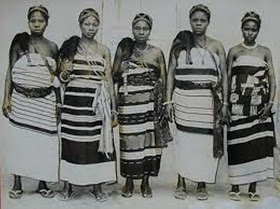War All Women Fought (The Aba Riot Of 1929) Poem by Chukwuebuka Adebayo
War All Women Fought (The Aba Riot Of 1929)
Pooh! pooh! ! pooh! ! !
Did you hear that?
That was the sound of bullets
The gunshots of the British soldiers
On a sun-bleached morning of November,
At the eastern heavens of my country
A day the embittered toothless sheep
Grew teeth and bitted the colonial masters
The race then was taken by the cripples,
And the swift ones turned flying and flying
For nine or ten hours on a dull, cloudy day
They bound their breasts and chased the warrant chiefs
It was a war fought by all Ibibio and Igbo women
Was though of stones and palm leaves;
As they marched on with their mocking song,
'If we catch them, we will sit down on them'
If we catch them, we will sit down on them'
But it was a fight for light of salvation
For the land of the igbos as a society;
Against the abuse of widows in the villages
The darkness of corruption of whites' indirect rule
From the big taxes their past mothers never paid
It was a stepping on a 'struggling snake battle'
And on the night that darkened that dormy day
Some pots lost their cooks at the Ewanga Opobo
And their children rained many tears;
For their patriotic blood been splattered
On the day when you will tell this story again
Remember to doff your hat for Nwa'anyeruwa,
Remember to hail Nwago, Nnete and Udoma.

This poem has not been translated into any other language yet.
I would like to translate this poem
An amazing write. Really good.